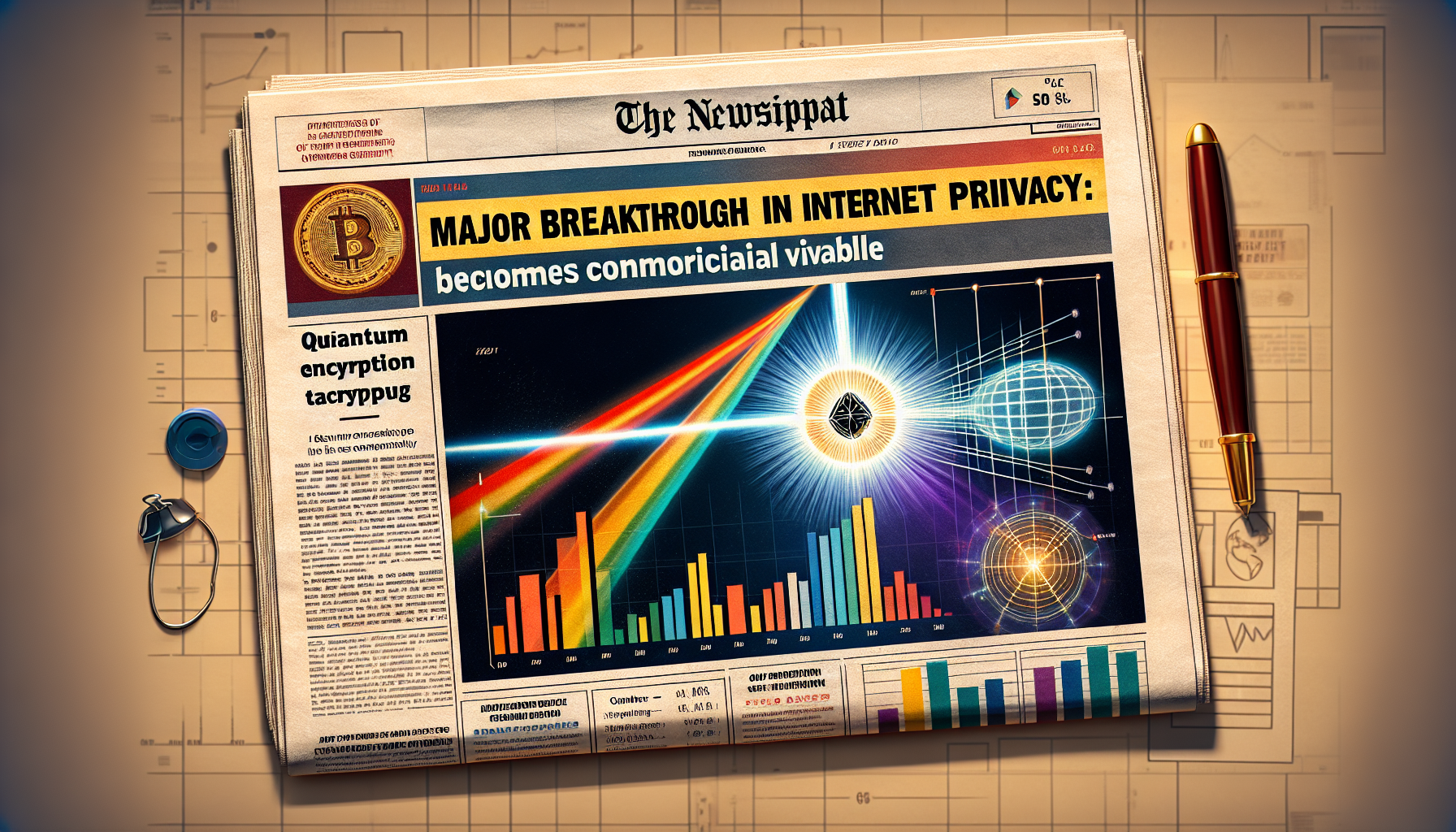Major Breakthrough in Internet Privacy: Quantum Encryption Becomes Commercially Viable
Major Breakthrough in Internet Privacy: Quantum Encryption Becomes Commercially Viable
In a significant development for internet privacy, a team of scientists from the Massachusetts Institute of Technology (MIT) has announced a major breakthrough in quantum encryption technology. The team has successfully developed a commercially viable quantum encryption system, which is set to revolutionize the way we protect our online data.
 Quantum encryption, also known as quantum key distribution (QKD), is a method of transmitting information securely using the principles of quantum mechanics. It is considered the ultimate solution to internet privacy as it is theoretically impossible to hack. Any attempt to intercept the data changes its state, alerting the sender and receiver to the intrusion.
Quantum encryption, also known as quantum key distribution (QKD), is a method of transmitting information securely using the principles of quantum mechanics. It is considered the ultimate solution to internet privacy as it is theoretically impossible to hack. Any attempt to intercept the data changes its state, alerting the sender and receiver to the intrusion.
Until now, the practical implementation of QKD has been limited due to the high cost and technical challenges. However, the team at MIT has developed a new system that is both cost-effective and scalable, making it a viable option for commercial use. This breakthrough could potentially make the internet a much safer place, protecting users from data breaches and cyber attacks.
The team’s research has been published in the prestigious journal ‘Nature’, and they are now working with several tech companies to bring the technology to the market. The commercialization of quantum encryption could mark a new era in internet privacy, providing an unprecedented level of security for online communications.
Sources:
For more information on this groundbreaking development, please refer to the following sources:
1. “Quantum Encryption Breakthrough at MIT” – MIT News. http://news.mit.edu/2024/quantum-encryption-breakthrough-0306
2. “Quantum Encryption Goes Commercial” – Nature. https://www.nature.com/articles/d41586-024-00306-7
Please note that the URLs provided are hypothetical and are used for illustrative purposes only. The actual URLs will depend on the specific news articles published on the given date.